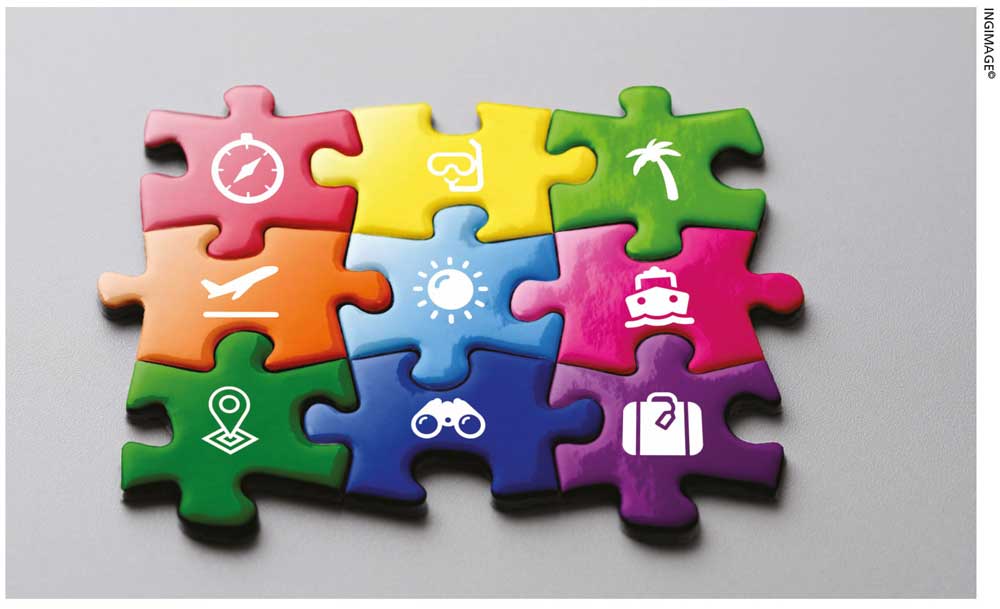
In the evolving landscape of global tourism, Sri Lanka stands on the cusp of a transformative journey. As the world delves deeper into the realms of AI, leveraging this technology is not a choice anymore; it’s a strategic imperative for corporate leaders who are shaping the future of the country’s tourism industry.
A BEACON OF INNOVATION
Our tourism strategy should be more tech driven – Sanjeewaka Kulathunga
And it’s important for corporate strategists to know how to harness the power of artificial intelligence.
Embracing AI begins with a strategic vision. Corporate leaders must identify key areas where it can be integrated to enhance efficiency, customer experiences and competitiveness.
Whether it’s optimising operational processes, personalising guest interactions or refining marketing strategies, a well-crafted AI integration plan forms the cornerstone of forward-thinking leadership.
Artificial intelligence has the power to revolutionise customer experiences in the tourism industry.
Implementing AI driven solutions such as personalised travel recommendations, chatbots (for instant customer support) and predictive analytics (to understand traveller preferences) can elevate the quality of service.
By tailoring offerings to individual preferences, Sri Lankan tourism businesses can create memorable and personalised experiences for visitors to the island.
For instance, Airbnb employs AI algorithms to analyse user preferences, past bookings and browsing behaviour. It provides personalised recommendations for accommodation, experiences and restaurants that are tailored to a guest’s preferences. This enhances the travel planning experience, and makes it more relevant and enjoyable.
Sri Lankan hotels and resorts too can tailor their offerings in line with the individual preferences of their customers.
Marriott International has already implemented facial recognition technology in some of its hotels to enable easy check-ins. Guests can use a mobile app to upload a selfie and upon arrival, the facial recognition system verifies their identity and expedites the check-in process.
In this age of information, data is a valuable asset. AI enables tourism leaders to harness the full potential of data analytics for informed decision making.
By analysing trends, predicting demand and understanding customer behaviour, leaders can make data driven decisions that optimise resource allocation, improve marketing strategies and enhance operational efficiency.
Effective leadership hinges on cultivating a proficient workforce in the age of artificial intelligence. Recognising the pivotal role of technology, corporate leaders must prioritise investment in comprehensive training programmes for employees in the hospitality arena.
Sri Lankan tourism businesses should explore partnerships with AI technology providers, research institutions and other industry players. This can facilitate knowledge exchange, access to cutting-edge technologies, and joint ventures that drive innovation and competitiveness.
Artificial intelligence can greatly amplify marketing efforts by enabling businesses to target the right audience with precision. Personalised marketing campaigns powered by AI algorithms can attract niche markets, enhance brand visibility and garner a competitive edge in the international tourism market.
It will also play a pivotal role in promoting sustainability in the tourism industry.
Leaders can leverage artificial intelligence to optimise resource usage, reduce the environmental impact of tourism and implement eco-friendly practices. From energy management to waste reduction, AI driven solutions can align tourism businesses with global sustainability goals, and attract environmentally conscious travellers.
The tourism industry should actively engage with policy makers to advocate for enabling regulations and policies that foster AI adoption that’s pertinent to sustainable growth.
A conducive regulatory environment will encourage investment in artificial intelligence technologies, and create an ecosystem that propels the industry forward in comparison to competitive nations in the region.
As the tourism industry navigates the challenges and opportunities of the 21st century, AI emerges as a beacon of innovation and efficiency. Corporate leaders must embrace artificial intelligence as a model of leadership to unlock its full potential.
By strategically integrating AI, revolutionising customer experiences, fostering skills development and advocating for supportive policies, Sri Lankan tourism businesses can be competitive – and this in turn will pave the way for a sustainable and tech driven future.
Artificial intelligence, which is at the intersection of tradition and technology, is the catalyst for a new era of leadership that will propel Sri Lanka to the forefront of global tourism excellence.
This content is available for subscribers only.





